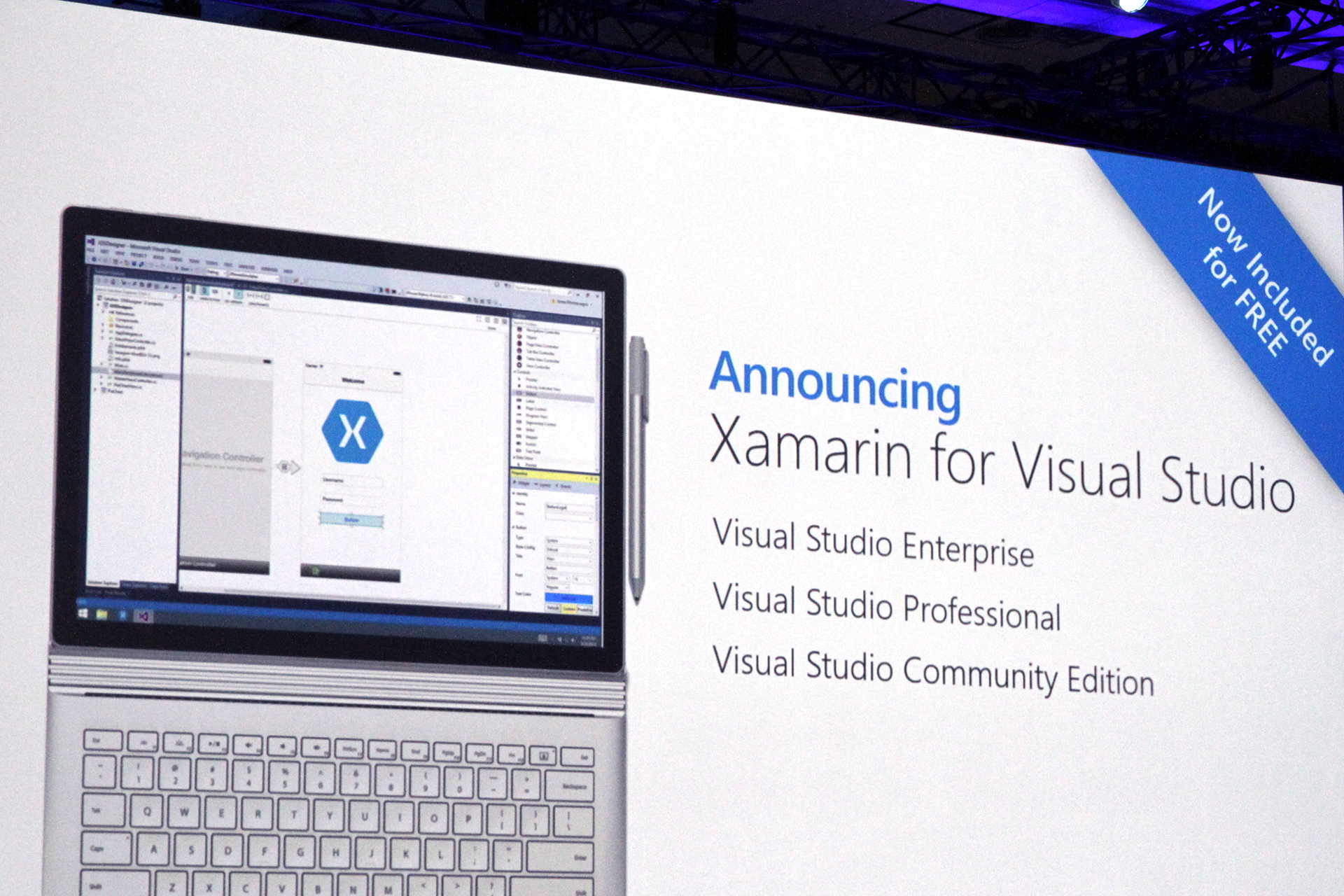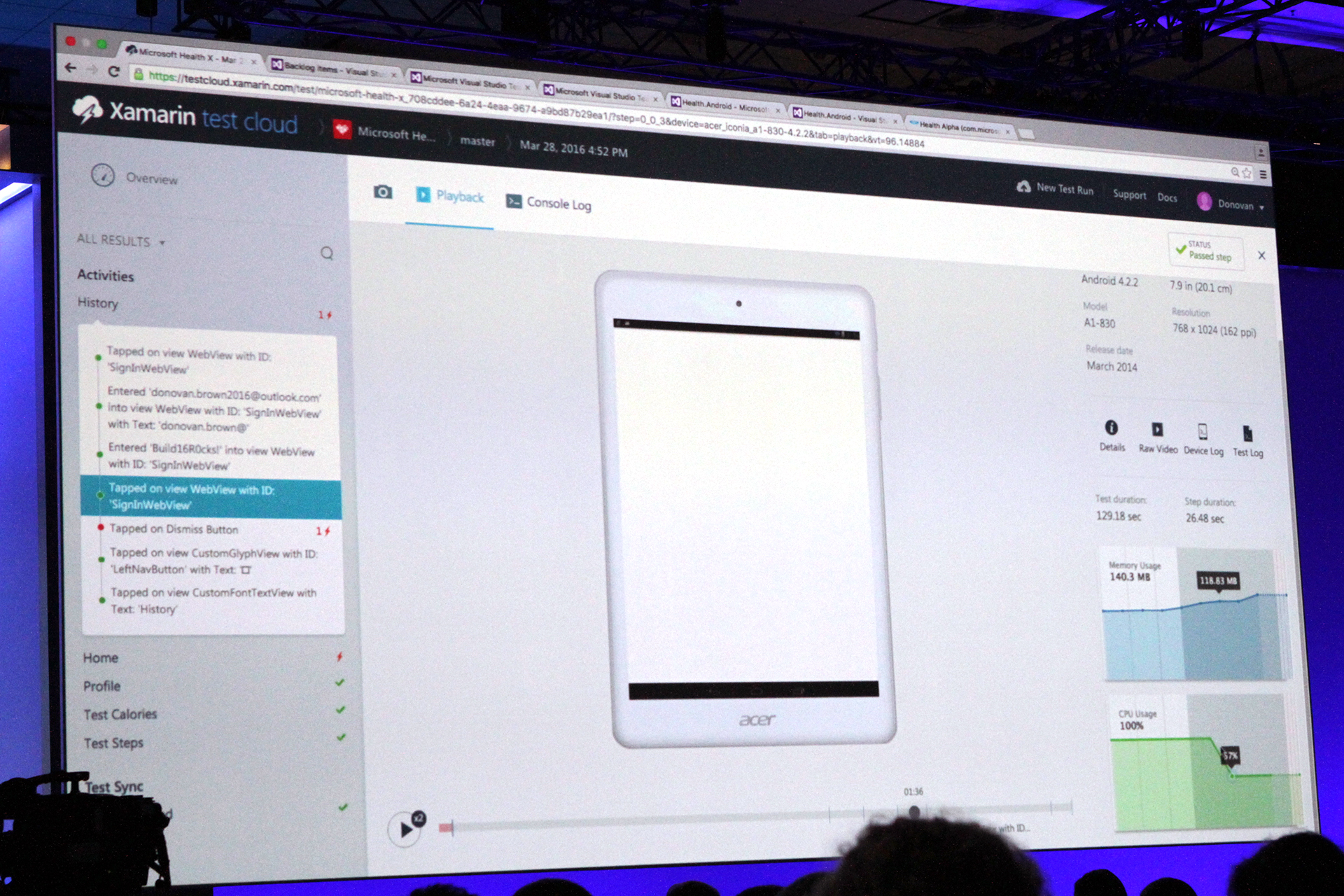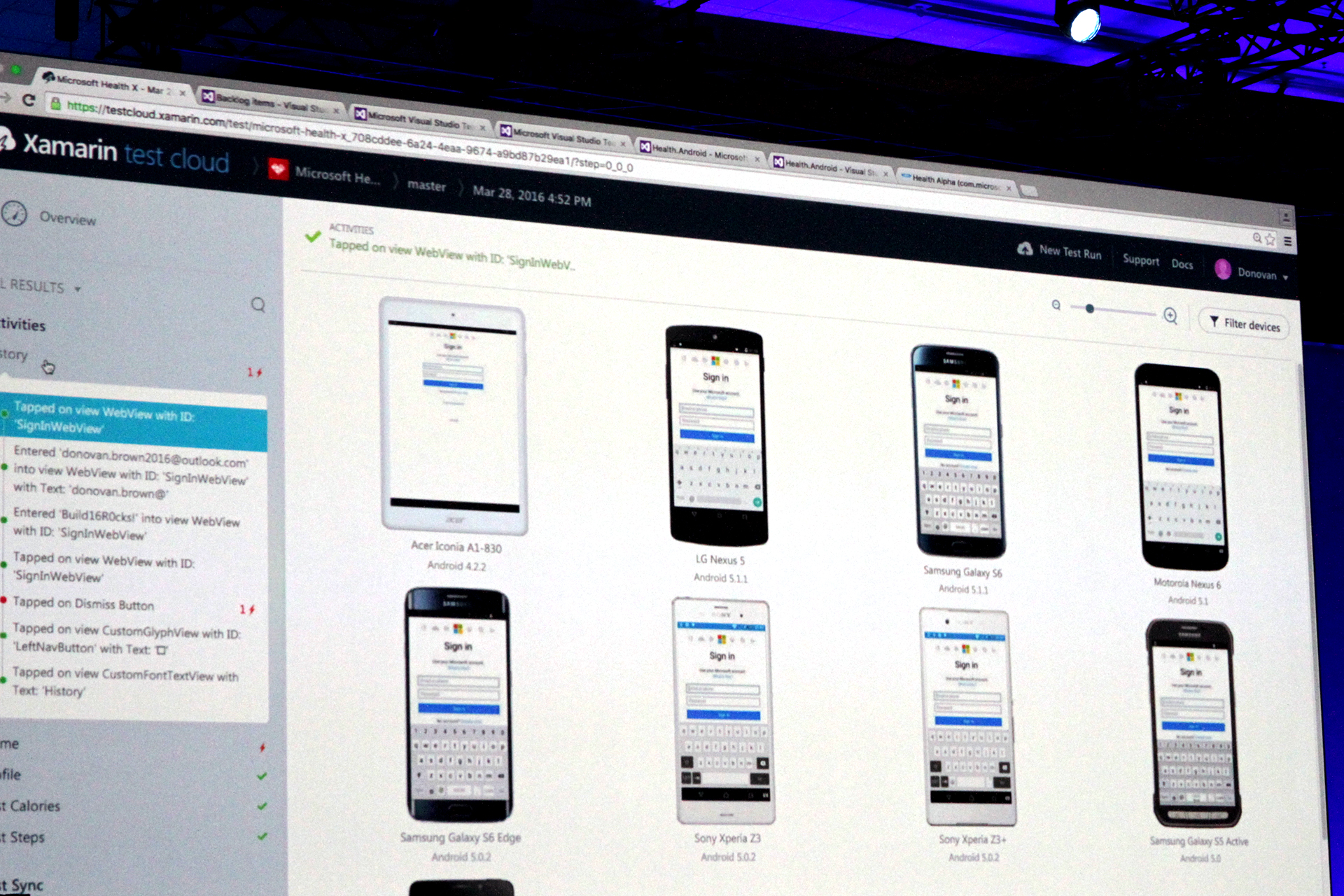Microsoft Makes Xamarin Free In Latest Attempt At Mobile Dominance
As we’ve written before, Microsoft’s attempt to tackle the mobile market by making it easier to port apps to Windows Mobile from other platforms has fizzled somewhat. However, the company has moved on from last year’s strategy by acquiring Xamarin. The freshly wholly-owned Microsoft subsidiary offers developers a way to create apps for essentially any mobile platform using C#.
The acquisition deal closed just days ago, and Microsoft announced today at the second Build 2016 keynote that Xamarin would be a free addition to Visual Studio. That includes the Enterprise Edition and Professional Edition, but also the free Community Edition of Visual Studio. There’s also a free Mac edition as of today, and Microsoft open sourced the Xamarin runtime.
Unlike the Android and iOS porting projects Microsoft pushed last year, this Xamarin business isn’t just about goosing Windows Mobile adoption. It’s bigger than that. More than anything, it’s a key part of Microsoft’s overall mission as a productivity and platform company. Yes, Microsoft wants to do well in the smartphone OS space. And yes, Xamarin can make that happen more easily because it gives devs a way to build native mobile apps for multiple platforms with shared code. But what it’s really designed to do is pull developers into Microsoft’s ecosystem of services.
It’s not only free, Xamarin in Visual Studio is designed to be user-friendly. There are built-in templates for iOS and Android, as well as premade bits of code devs can use as “exercises.” From the stage, we saw how you can make a change in the code and see it immediately take effect in a live viewer.
Part of the value of Xamarin is in its test cloud. A Xamarin rep told me that the company runs tests constantly on actual devices--they have a sea of them in a facility. Using the test cloud, devs can easily see any test errors, keep an eye on CPU and memory usage, and even see a “video” of how the app is running on the device for which they’re programming. And it supports “any language, any platform.”
Microsoft also announced that Xamarin’s core platform is now part of the .NET Foundation, meaning that it’s now fully open source and cross-platform. Unity, Red Hat, and JetBrains all joined the .NET Foundation, too.
Seth Colaner is the News Director for Tom's Hardware. Follow him on Twitter @SethColaner. Follow us on Facebook, Google+, RSS, Twitter and YouTube.
Get Tom's Hardware's best news and in-depth reviews, straight to your inbox.
Seth Colaner previously served as News Director at Tom's Hardware. He covered technology news, focusing on keyboards, virtual reality, and wearables.
-
megiv I used Xamarin with C# and it's so much fun. C# is such a wonderful language, and being able to code in C# for mobile apps is just awesome.Reply -
cknobman Finally, been wanting to use Xamarin for years but did not have the money to do it.Reply
Time to try making my Windows Phone app available for Android and iOS!! -
canadianvice Does anyone know how easy it is to adapt a good understanding of VB.net to C#? I've wanted to make use of Xamarin, but if I have to totally relearn things, it's not much of a point vs. learning Android code.Reply -
RedJaron Reply
My experience between languages, whether it's VB, C++, or SQL, is that you don't so much as relearn how to program as simply learn the how to bring your existing programming knowledge to bear in a new syntax. Whether you say "Dim X as Integer" or "int x;" the concept of an integer variable is the same. If you understand programming, you already understand the steps you need to do to accomplish a task. Learning a new language just means you know another way of telling a computer to perform the exact same actions.17747051 said:Does anyone know how easy it is to adapt a good understanding of VB.net to C#? I've wanted to make use of Xamarin, but if I have to totally relearn things, it's not much of a point vs. learning Android code. -
alextheblue ReplyWhether you say "Dim X as Integer" or "int x;" the concept of an integer variable is the same. If you understand programming, you already understand the steps you need to do to accomplish a task.
I dunno man there are near-exceptions. I remember in HS they started us off on Pascal using Borland libraries (and a badly outdated IDE) and then switched us to C++ and standard template... it wasn't quite like starting over but it wasn't just learning new ways to initialize variables either. :D
But I get what you're saying if you can program in one language you can generally pick up another one easily enough, it's mostly learning the syntax and common libraries. I eventually discovered that I really don't care for programming though, took some in college and I got good grades but it just wasn't for me. Especially testing and debugging which seemed to me like most of the workload. -
bigpinkdragon286 VB.NET to C# is not so drastic a switch. It mostly is just syntax as both languages target the same CLR (Common Language Runtime). Programming in C# may feel a bit odd at first, but once you work through the transition, it'll feel just like home, and maybe even make a bit more sense than VB.NET.Reply -
bigpinkdragon286 Xamarin Starter Edition was available for free as a separate add-on to VS 2012 & 13, and installed alongside of 2015. This may be what you are thinking of. The Starter Edition was a tad hamstrung for serious development work. Thanks to Microsoft's acquisition of the company going through, non-Starter Edition Xamarin is now included with all of the VS 2015 releases.Reply
Xamarin FAQ -
Bollinger02 ReplyDoes anyone know how easy it is to adapt a good understanding of VB.net to C#? I've wanted to make use of Xamarin, but if I have to totally relearn things, it's not much of a point vs. learning Android code.
Try JetBrains DotPeek's.... and go for Decompiled Sources. It will give you a fair C# translation of you VB app -
Martell1977 Windows Phone 8.1 was really a nice OS and I prefer it over Android. but I'm stuck with Android because MS doesn't have a compelling phone with WP10 on it. I haven't had a chance to try WP10 because of this. I'm planning to upgrade my phone soon, but I don't care for a low end, low resolution phone and MS (as far as I can tell) have no high end phones.Reply



